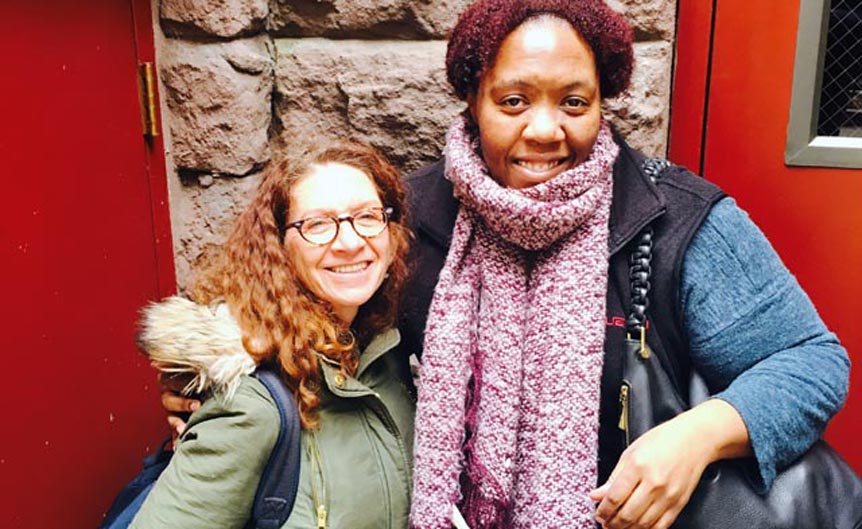When I think about Ferguson, Missouri I think about the Star Wars Trilogy. I spent every summer between the ages of 10 and 25 in Ferguson; and, I also spent a few weeks over the winter holiday there as well. So, I always waited with baited breath for summer, and the next movie in the trilogy. Every Saturday during those times, we ate Faraci’s pizza. When the riots first happened, I remember thinking, “I hope they leave Faraci’s alone because I really want some when I go back”…and I was grateful to see Faraci’s still standing when I went back to Ferguson for my mother’s 85 birthday party.
I also remember trudging to Schnucks grocery store during the “great blizzard” and I got my very first job bagging groceries at that same store. The summer I turned 24, I spent jogging the streets of Ferguson as I prepared for the physical agility part of the police application process.
Having grown up spending time in Ferguson, served as a police officer in Columbia, Missouri, and a career as a criminal defense attorney, I had lots of personal reactions to the death of Michael Brown. After the news broke about his death the inevitable media rush to the bottom began to occur. Everything about Ferguson, the citizens, the population, the police was fodder for debate and commentary. I began to wonder if I lived in a Ferguson vacuum. I never, ever heard my family talk about racism, racists cops anything that suggested things were as bad and one sided as the media suggested. None of my family ever told me, “hey be careful, you know the cops will harass you if they see you jogging down the street”; no one ever said, “hey be careful while you’re driving”. They alerted me to speed traps but nothing about bad cops. But then I realized…that was literally 25 years ago. My, how things have apparently changed.
One week before Michael Brown was killed, I was stopped for speeding in Calverton Park, Missouri, just around the corner from Ferguson. I was stopped by a young, white cop. I was driving a 2014 SUV with Florida license plates (a rental) and I was speeding. The cop was young, but professional and friendly. He did not approach with his hands on his gun and did not approach with an attitude of fear. I believe it is because I go through the same ritual when stopped by the police for any reason: I turn the car off, put it in park, roll down my window, and stick my hand out the window. If it is night time, I turn on my dome light to illuminate the interior. It is these “Hey, I’m not armed” rituals that dictate how the cop approaches me. It is these little things people of color have to do that Anglos do not have to do in order to survive police encounters.
Racial profiling does exist. It can be very dangerous. And so much went horribly wrong in the case of Michael Brown.
With my personal and professional experience both of the St. Louis area and the criminal justice system, I could write volumes about the specifics of this case and that Eric Garner. Every piece is complex and worthy of analysis, from the way Michael Brown’s body lay uncovered for hours in the street, to the media sympathy for Darren Wilson, to intricacies of the Grand Jury system. In the both the Brown and Garner cases, the Grand Juries decided after all they heard there was not enough to charge the officer(s) with a crime. But what were they told? Did they have the information to do their job? The tools—or lack thereof—they were given to arrive at that answer is the real injustice.
But let me leave you with a few thoughts, while black men are killed by cops disproportionately, people fail to realize and remember police also kill white men without punishment. The fact is that they can apparently kill anyone regardless of race and/or color makes this a misuse of power and authority issue, not necessarily a racial issue. I think this is why many people of all races should be concerned: the police can kill their children too and not be held accountable.
Here are 3 facts I want you to remember about these incidents and the rest of the incidents that will follow:
Just because something is unjust, does not mean it was illegal or against the law; secondly, just because a death event has been labeled a homicide, does not mean it was murder. Lastly, the purpose of a grand jury is to answer one question, and one question only: Is there enough evidence to charge this person with a crime. Period. Guilt/Innocence is not the question or the issue.







